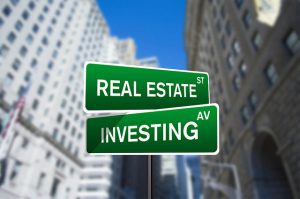Asia Pacific real estate investors are steeling themselves for impacts stemming from the coronavirus, the threat of which would add to existing economic headwinds in the region.

While it’s too early to know exactly how Asia Pacific real estate, especially commercial markets, could be affected, the increasingly important position of China on the world stage means economic repercussions are likely, according to a JLL report on the topic.
Table of Contents
“The virus is untimely for China given that it’s the start of a new calendar year and the spread escalated during the country’s most important holiday of Chinese New Year in late January,” says Roddy Allan, chief research officer, JLL Asia Pacific. “This has made it more difficult for the Chinese economy to reopen fully.”
The coronavirus virus – which originated in Wuhan, China, in December late last year – has spread globally, with cases reported in Southeast Asia, Europe and United States. In China, factories, malls and tourism have been affected, adding to strains from trade tensions with the U.S. last year.
“The Chinese government understands the central role it plays to keep the global economy stable and has moved swiftly and decisively to manage the fall-out, avoiding a sharp correction,” Allan says.
Adding to the strain of the Asia Pacific Real Estate
While final 2019 figures aren’t yet out, Asia Pacific’s gross domestic product likely slid to 5.8 percent last year compared to 6.3 percent in 2018, according to a World Bank Report in October, due the trade war and lower global demand for exports.
While the Asia Pacific real estate had a strong showing overall in 2019, rental declines were evident in key markets such as Hong Kong and Beijing.
“Even before the coronavirus crisis, investors were already exercising caution and seeking out sectors and markets which show signs of resilience amid ongoing political uncertainty and a gradual slowdown of the global economy,” Allan says. “The outbreak has put this demand clearer into focus.”
While looking to the outbreak of Severe Acute Respiratory Syndrome (SARS) in 2003 for hints on how markets could perform this year, investors should be cautious on reading too much into it, Allan says.
Mainland China’s economy is nine times larger now than it was in 2003, just before SARS hit Hong Kong in March 2003. The country is also now the world’s top exporter and the second-largest importer, not to mention the world’s second largest economy; when SARS hit, it was the sixth largest.
Still, Allan foresees the coronavirus having a similar “sharp but short-lived” impact on Asia Pacific real estate investment market.
“The impact on deal volume should be limited if the outbreak dies down in three to six months,” he says. “Transaction volumes may pull back slightly in the first half of 2020 as some investors take a wait-and-see approach and delay deals,” but should be back on track by the second half of the year due to accommodating policies.
Asia Pacific real estate – Especially Retail and hospitality are vulnerable
Service industries have been among the first to feel the impact. On the hospitality front, the coronavirus has hit hotels in Hong Kong, Malaysia, Philippines, Singapore and Thailand and Australia, where Chinese tourists are among the biggest groups of visitors. Major airlines such as Cathay Pacific, Singapore Airlines and AirAsia have scaled back flights to and from China.
Retail in China, Hong Kong and Singapore is also expected to feel the impact as consumers avoid crowded places such as shopping malls, while major brands including Nike, Apple and Starbucks are closing outlets across China to prevent the spread of the virus among employees and customers, according to JLL.
“There is no escaping the fact that investor sentiment will be affected in the short-term, but we do not foresee a lasting negative drag on Asia Pacific’s real estate,” Allan says. “Risk premiums will recede once the virus is under control.”
Colliers International in publishing its latest market research report which examines the performance of Singapore real estate investment in Q1 2020 and its prospects ahead said Singapore remains an attractive top investment destination.
Colliers Research projects that Singapore investment sales volumes will grow on average by 5% per annum in longer-term, over 2019-2024 despite a 24% forecasted drop year-on-year (YOY) in 2020 as Singapore’s strong policy response to the coronavirus (COVID-19) pandemic is reinforcing its safe haven status.
Despite Covid-19 challenges Singapore remains top investment destination for the long term
Jerome Wright, Senior Director of Capital Markets at Colliers International, said, “The global disruption to economic activity caused by COVID-19 will mean challenging times in the short-term. However, the longer-term fundamentals of the Singapore real estate market remain strong and intact, and we can expect the market to recover as the successful control measures are lifted and industries regain full momentum.”
In the short-term, based on advance estimates from the Ministry of Trade and Industry (MTI), Singapore’s Q1 GDP contracted by -2.2% YOY, and Singapore is experiencing the worst decline since the global financial crisis.
In addition, according to Oxford Economics, as of 24 March 2020, the Singapore economy is forecast to head into its first recession in two decades, putting 2020 growth in the range of -4% to -1%.
Colliers Research also reports some of the largest residential deals were closed during Q1 including five residential public land sales totaling S$1.4 (US$ 1.0) billion and two properties transferred during the Frasers Logistics and Industrial Trust (FLT) – Frasers Commercial Trust (FCOT) merger –China Square Central for S$648 million and Alexandra Technopark for S$606 million.
An earlier report by CBRE said that as Covid-19 compels investors, investment volume will be supported by public and bite-sized deals. Preliminary real estate investment volume in Singapore for the first quarter this year amounted to S$2.47 billion, a 36.1% drop from the previous quarter. This marks the second consecutive quarter of decline in real estate investment volume.






